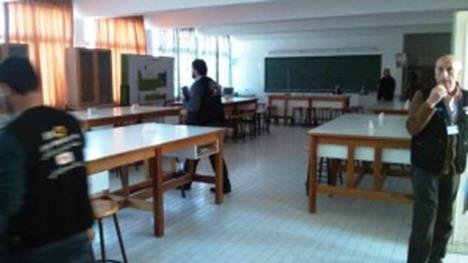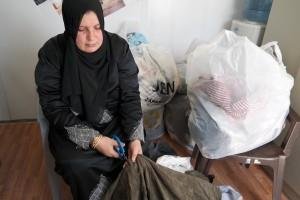By Miyako Hamasaka | PR Manager
As JEN announced on 25th Dec. 2014 that we had been under the process of assessing all public (the state owned) schools in Jordan since December, we completed this after four months in April.
According to the list from the Ministry of Education, the total number of the school was 3,658. However, our assessment found out 23 schools dropped from the list, resulting in a total of 3,681 schools. To judge our result of the assessment; one of our partners, UNCEF made a surprise inspection, and concluded 95% of the result was correct.
JEN has run a project for Syrian refugee camps in Jordan at the same time as the project that accepted both the Syrian children and Jordanian children in the Jordanian host community.
The Ministry of Education in Jordan offers an education opportunity for children who evacuated from Syria. They accepted these of who are children in the public (the state owned) schools in Jordan. This is because there is no end to the conflict in Syria since it was five years ago. The number of the Syrian children in the Jordanian public schools has been increasing. Therefore, the space of the schools, and the capacity of the water and sanitation facilities in schools appear to be insufficient for accepting the increased number of the students. This is especially the case for the border districts with Syria and Amman districts where the capital is located, more and more public schools began to have two shift systems of classes in the morning and in the afternoon to cover the increasing amount of the pupils.
Furthermore, since families of Syrian refugees are suffering from the high prices in Jordan, those of who move on country sides to big cities are increasing. We can say that the burden of the Jordanian government and people who accept Syrian refugees are becoming heavier. On the other hand, the Ministry of Education cannot catch up to grasp the needs of the public schools in Jordan entirely.
In order to implement assistance promptly, adequately and efficiently based on grasping the needs correctly, it is necessary to cooperate with related agencies such as the Jordanian government, UN and NGOs. JEN will share the report on the assessment with them, and through these processes, we will bring the assistance for the schools in all of Jordan.
Recycling Clothes is Unlimited Creativity
One of the changes in living one’s life as Syrian refugee women was that they have a plentiful free time in Jordan, but they did not easily have the time when living in their beloved homeland Syria. As women, they would like to use such the free time in a way that they feels beneficial and useful; even though they are nothing to do creative things in Jordan. Due to the fact that they know they are very much productive human beings.
This is one of the JEN’s projects that we proposed an idea to the women in the camp and they were producing recycling clothes. The group of the women liked the idea, therefore, they decided to work together with other groups of women in this regard.
At the first, a supervisor of the project demonstrated ideas how to recycle old clothes and to transform them into carpets and bags. Then each one of the ladies selects pieces of clothes depending on what she has in mind and what she has decided to do. Some of the ladies prefer to take men’s shirts, as the texture is the best for bed covers and curtains. Almost everyone already knows how to braid and the rest of the process is simple to learn.
The group of women is 30 those of who form the essential core of the “Recycling Cloth” project, and there are more women who attend weekly gathering from different districts of the camp. The group members want to fill their free time doing useful things for their families in a way that increasing their creativity, energy and sense of fulfillment in the life.
The group can use their products or decorate their own caravans instead of buying materials from the market. All of the members feel proud of what they have produced. In the future, the members would like to develop a business so that they can sell the products inside the camp; and if possible, outside in Mafraq and Amman.
Project reports on GlobalGiving are posted directly to globalgiving.org by Project Leaders as they are completed, generally every 3-4 months. To protect the integrity of these documents, GlobalGiving does not alter them; therefore you may find some language or formatting issues.
If you donate to this project or have donated to this project, you can receive an email when this project posts a report. You can also subscribe for reports without donating.

